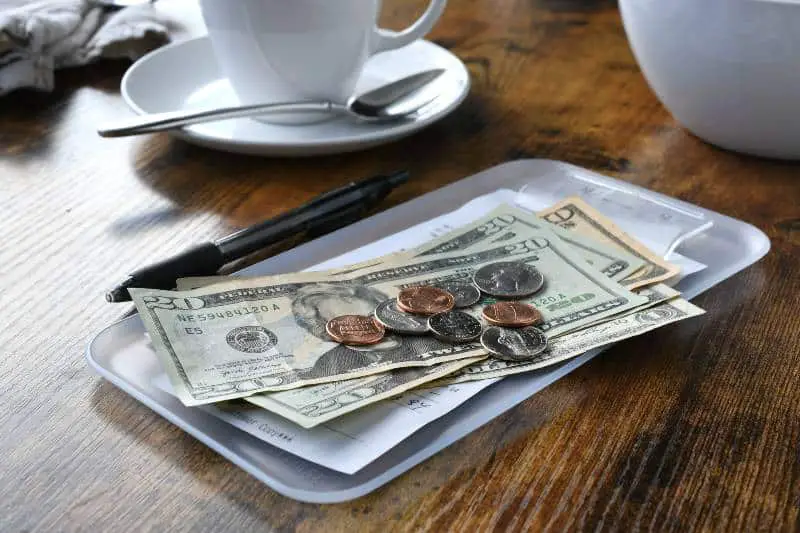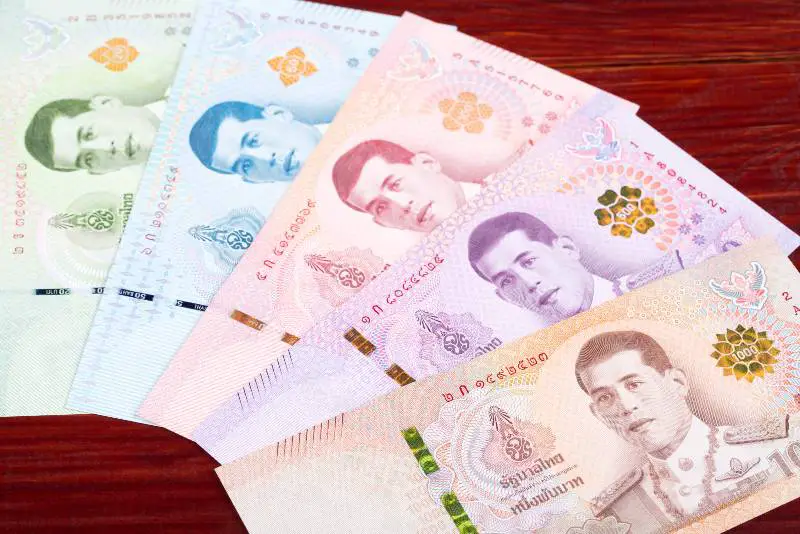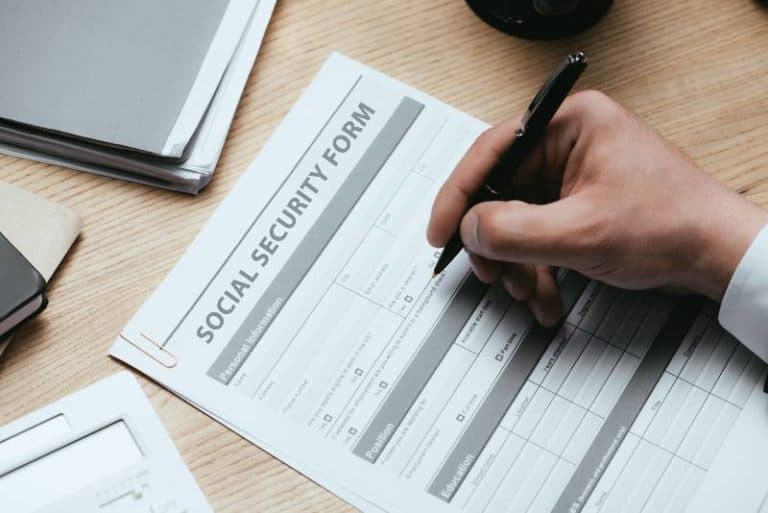Tipping in Thailand: Do’s, Don’ts, and Common Myths
Are you planning to visit Thailand? Then you must learn about the tipping culture in this beautiful country. Whether visiting tourist attractions, staying at hotels, eating out at restaurants, or going on a tour – it is important to understand how and when to tip during your cultural experience in Thailand. Tipping etiquette varies from place to place around the world and while many travelers may be used to gratuity being included in their bill for services received, this is not necessarily the case in Thailand.
In this blog post, we’ll dive into the customs associated with tipping so that your visit will go off without any awkwardness or embarrassment!
While tipping is not customary in Thailand and there are no obligations to do so, expressing gratitude with a small gratuity for exceptional service is greatly appreciated. It is important to note that unlike in other regions, Thai service providers do not expect or anticipate receiving tips.
Key Takeaways
- Tipping in Thailand isn’t just about money—it’s deeply rooted in showing respect and appreciation in line with Thai customs.
- While tipping is appreciated, over-tipping can sometimes be seen as ostentatious. Knowing when and how much to tip is crucial.
- Tipping etiquette varies depending on the scenario, from restaurants and hotels to taxis and street vendors. Understanding each situation helps in making informed decisions.

History and Origin of Tipping in Thailand
Tipping in Thailand: A Deep Dive into Its Origins and Evolution
In the lush landscapes and bustling cities of Thailand, where intricate temples coexist with modern skyscrapers, a custom has quietly woven itself into the fabric of everyday life: tipping. To truly appreciate its significance, it’s vital to understand its roots and the role of Western influence.
The Historical Perspective
Traditionally, tipping wasn’t a standard practice in Thailand. Many Thais, for generations, lived by the principles of Buddhism, emphasizing virtues like kindness, selflessness, and goodwill. When service was rendered, it was often done with a genuine heart, and receiving extra money for that service was neither expected nor customary. In other Asian cultures, tipping was sometimes even considered rude, as if one was suggesting that the service provider was not earning a fair wage or that the service rendered was beyond the realm of ordinary duties.
Imagine a simple scenario: A family visits a traditional Thai eatery, enjoys a hearty meal of green curry and pad thai, and then pays their bill. Historically, leaving additional money might confuse the restaurateur. They might even chase after the family thinking they forgot their change!
The Evolution of Tipping in Thailand
So, how did we go from confusion over extra baht on the table to tipping becoming a considerate gesture? The answer lies in the booming tourism industry and Western influence.
Thailand, especially from the late 20th century onwards, began to emerge as a significant global tourist destination. Cities like Bangkok, Phuket, and Chiang Mai saw an influx of travelers from the US, Europe, and other Western countries where tipping was an ingrained practice. These tourists, accustomed to their own customs, often left tips in restaurants, hotels, and for services like massages or guided tours.
Now, picture a different scene: A couple from New York, used to tip 15-20% of their bill at home, leaves a generous tip at a beachfront restaurant in Phuket. The server, perhaps a little surprised but certainly pleased, starts to understand that this is a gesture of appreciation from foreigners. As more tourists do the same, the practice begins to take hold.
Western Influence
The West, with its deep-rooted tipping culture, undoubtedly played a pivotal role in introducing and popularizing this custom in Thailand. Travel guides and blogs, often written by Westerners for Western audiences, included tipping etiquette sections, further cementing the idea that leaving a little extra for good service was the polite thing to do in Thailand.
Moreover, as many Thais started working in jobs catering to tourists, they began to rely more on these tips to supplement their incomes. Consequently, businesses that primarily serve tourists might now even expect tips, while local-centric establishments might still find it a pleasant but unnecessary gesture.
Learn more about Thailand in an article I wrote here about Unveiling Rich Traditions and Cultural Wonders in Thailand.
Do’s of Tipping in Thailand
While Thailand’s tipping culture has evolved considerably under the influence of tourism, there are some essential guidelines to bear in mind when navigating this practice in the Land of Smiles. Let’s break it down:
When to Tip:
- Always Tip for Exceptional Service: Tipping in Thailand is not as obligatory as in some Western countries, but it’s always appreciated. Especially if someone has gone above and beyond or provided outstanding service, a tip is a great way to say “thank you.”
- Tourist Hotspots: In places that see a lot of tourists – think Phuket, Pattaya, or popular Bangkok spots – tipping has become more commonplace, and workers often anticipate it.
How Much is Appropriate:
- Loose Change is Perfect: For smaller bills, leaving the loose change is a simple and appreciated gesture.
- For Larger Bills: A tip of 10-15% is generous, but often people just round up to the nearest convenient denomination.
Specific Places and Services:
- Restaurants: In local eateries, tipping is not common, and leaving behind your small change is sufficient. In upscale restaurants or those catered to tourists, a tip of 10% is appreciated if service charge isn’t included.
- Hotels:
- Bellboys or Porters: A tip of 20-50 baht is customary for carrying bags.
- Housekeeping: Leaving a daily tip of 20-50 baht is a sweet gesture, especially if you’re staying for several days.
- Concierge: If they’ve provided exceptional service, like securing hard-to-get reservations, a tip of 100-200 baht is a kind gesture.
- Taxis: It’s standard to round up the fare. For instance, if the meter reads 47 baht, giving 50 and letting the driver keep the change is common.
- Personal Services:
- Massages: For a traditional Thai massage, a tip of 50-100 baht is appreciated. If you’re at a high-end spa, 10-15% of the total is generous.
- Hairdressers & Beauty Services: A 10% tip is adequate for good service.
- Tour Guides: Depending on the length and quality of the tour, tipping between 100-300 baht for a day’s tour is a great way to show appreciation.
A golden rule to remember is that tipping in Thailand is largely discretionary. The amounts listed are guidelines and can be adjusted based on the quality of service and your comfort level. The Thai people are known for their warmth and hospitality, so more often than not, any tip you give will be received with genuine gratitude. Safe travels and happy tipping!
Don’ts of Tipping in Thailand
As much as tipping in Thailand has become more prevalent in certain sectors, there are clear situations where it might not be necessary, and sometimes, even inappropriate. Delving into the don’ts can help tourists avoid over-tipping or misinterpreting local customs.
Situations Where Tipping Might Not Be Necessary or Expected:
- Street Food Stalls: These are quick, on-the-go places, and tipping is rarely expected. You pay for your pad thai or mango sticky rice, enjoy it, and move on.
- Local Markets: Whether you’re buying fresh fruits, souvenirs, or clothes, local markets typically don’t expect tips.
- Temples & Religious Sites: Making a donation directly to the temple is more customary than tipping individual monks or caretakers.
- Public Transportation (apart from taxis): On buses, trains, or ferries, there’s no need to tip.
Over-Tipping and Its Implications:
- Setting Unrealistic Expectations: Over-tipping can inadvertently set a precedent, leading workers to expect similar tips from other tourists. This can strain interactions for those who tip according to standard practices.
- Distorting the Local Economy: Massive tips can sometimes overshadow a day’s, or even a week’s, wages in certain professions. This could unintentionally influence people to move towards tourist-centric jobs, potentially sidelining other vital professions.
- Being Perceived as Flaunting Wealth: Thailand, while growing, is still a developing country. Over-tipping can come off as flaunting wealth, which isn’t always received positively.
Common Misconceptions:
- “Tipping is Mandatory Everywhere”: As mentioned, while tipping has become more frequent in tourist areas, it’s not a nationwide expectation. Remember to gauge the situation.
- “If There’s a Service Charge, I Must Tip Additionally”: Many upscale restaurants and hotels add a 10% service charge to bills. While any extra is appreciated, you’re not obligated to tip beyond this, especially if you feel the service charge adequately covers the tip.
- “Tipping Large Amounts Will Get Me Better Service Next Time”: Thai people are generally hospitable and friendly. While tipping might be appreciated, it’s the respect and kindness you show that’s more likely to be remembered.
When in Thailand, it’s crucial to strike a balance. Be generous, but also be mindful. Your intentions are, of course, to show appreciation, but it’s equally essential to be aware of local nuances. Remember, a genuine smile and a heartfelt “Khob Khun Krab/Kha” (Thank you) can sometimes be the most valuable tip of all. Safe travels in the beautiful Land of Smiles!
Cultural Significance and Respect
To truly understand the art of tipping in Thailand, one must recognize the underlying cultural values that shape this practice. Thailand, a nation of rich traditions and deeply held beliefs places immense importance on humility, respect, and mutual appreciation. Here’s how these values intertwine with the act of giving tips.
Humility in Giving
- Silent Gesture: In many cultures, tipping is a silent gesture of appreciation, but in Thailand, this is particularly emphasized. Flaunting or overtly showing off one’s generosity can be perceived as insincere or even arrogant. Hence, it’s preferable to leave your tip discreetly rather than make a grand gesture out of it.
- Avoid Overcompensation: Over-tipping, as mentioned earlier, can be seen as flaunting wealth. In Thai culture, humility is a revered trait. Thus, offering what feels right for the service, rather than an extravagant amount, aligns more with local sentiments.
The Deep-Rooted Value of Respect:
- Respect Through Recognition: Tipping in Thailand isn’t just about money. It’s a nod of acknowledgment. By leaving a tip, you’re telling the service provider that you value their effort and the role they played in making your experience memorable.
- Bow of Gratitude: When handing over a tip, especially in more personal service situations, you might notice the recipient giving a slight bow or placing their hands together in a prayer-like gesture, known as the “wai”. This is a traditional Thai sign of respect and gratitude. Responding with a smile or a nod can show mutual respect.
Cultural Reasons Behind Tipping Practices:
- Community Over Individual: Traditionally, Thai society places a strong emphasis on community. In some cases, tips might be pooled and shared among staff, reflecting the idea of collective effort and mutual support. This communal approach reinforces the idea that good service is a combined effort.
- Merit-making in Buddhism: The majority of Thais practice Buddhism, which values the idea of “making merit” or doing good deeds to accrue positive karma. Generosity is one of the paths to making merit. Therefore, when Thais give or receive tips, it’s often seen not just as a transactional act but as a gesture of goodwill that benefits both parties in a spiritual sense.
- Face-saving: The concept of “saving face” is crucial in Thai culture. It’s essential to avoid causing someone to feel embarrassed or lose dignity. Over-tipping, especially with a lot of attention, or making someone feel as if they are being pitied, can be counterproductive. It’s all about the balance of being generous while ensuring the other person retains their dignity.
In essence, tipping in Thailand isn’t just a financial transaction. It’s a dance of cultural values and mutual respect. When you understand the nuances behind it, you’re not just partaking in a routine practice but engaging in a culturally rich exchange that highlights the essence of Thai hospitality. Always remember: it’s not about the amount, but the intention and respect behind the gesture.
Tipping Etiquette by Scenario
Navigating the myriad of tipping situations in Thailand can be a bit like navigating Bangkok’s bustling streets – full of unexpected turns and nuances. Here’s a breakdown of common scenarios and the tipping practices typically associated with each:
Taxis
- Rounding Up: Generally, you can round up the fare to the nearest ten. If the meter reads 73 baht, consider giving 80 and letting the driver keep the change. It’s a gesture more than a requirement.
- Airport or Long-Distance Rides: If a driver helps with heavy luggage or provides a particularly smooth journey, an additional 20-50 baht is a thoughtful gesture.
Street Food Vendors
No Tip Needed: Street food in Thailand is a quick and casual affair. It’s typical to pay the exact amount requested. However, if you really enjoyed the food and service, leaving the small change won’t be frowned upon.
Sit-Down Restaurants
Local Eateries: In more traditional Thai establishments, tipping isn’t always expected. If you wish, rounding up the bill or leaving behind the coin change is appreciated.
Tourist and Upscale Restaurants: In places more accustomed to foreign visitors or fine dining settings, a tip of 10-15% is appreciated, especially if no service charge is included. However, if a service charge (typically 10%) is already added to your bill, additional tipping becomes optional.
Tour Guides
Full-Day Tours: For a day’s excursion, a tip of 100-300 baht is reasonable. If the tour guide goes above and beyond, offering insights, accommodating personal requests, or making the experience exceptionally memorable, consider tipping more.
Half-Day or Short Tours: 50-150 baht is a general guideline.
Drivers: If a separate driver is involved, tipping them 50-100 baht for their service is courteous.
Hotels
Bellboys or Porters: A tip of 20-50 baht per bag is customary, especially if they’re heavy or if the porter brings them to your room.
Housekeeping: Leaving 20-50 baht per day on the bed or pillow is a lovely way to thank the cleaning staff.
Concierge: If they help secure reservations, offer detailed directions, or provide special assistance, a tip of 100-200 baht is appreciated.
Spa and Massage Parlors
Traditional Thai Massage: These are typically offered in more casual settings. A tip of 50-100 baht for an hour-long massage is customary.
High-End Spas: In more luxurious spa settings, a tip of 10-15% of the total bill is generous.
Bars and Nightlife:
Local Bars: Tipping isn’t customary in local bars. If you have a dedicated waiter or waitress, consider leaving the change or rounding up.
Tourist Bars and Clubs: If you’re in a tourist hotspot, leaving 10% is a kind gesture, especially if you’ve received table service.
Personal Services (e.g., hairdressers, tailors):
Tip for Satisfaction: If you’re pleased with the service, a tip of 10% is a general guideline. For exceptional work or detailed jobs, you might consider more.
Remember, while these guidelines offer a framework, tipping in Thailand remains largely discretionary.
Tips for Tourists
A land steeped in history, breathtaking landscapes, and culture both intricate and alluring. As a visitor, embracing local customs and avoiding cultural missteps is crucial to ensure not just a memorable journey, but also a respectful one. Here are some key pointers:
Understand and Respect Wai
What is it? The ‘wai’ is a traditional Thai greeting involving a slight bow with the palms pressed together in a prayer-like gesture.
How to Use: The wai is both a sign of respect and a way to say hello, thank you, or goodbye. While you’re not expected to initiate it as a foreigner, returning it is a lovely gesture. However, avoid ‘wai-ing’ children; a simple nod or smile is sufficient.
Temple Etiquette
Dress Appropriately: When visiting temples, wear clothing that covers your shoulders and knees. This means no sleeveless shirts, short skirts, or shorts. Many temples offer sarongs or scarves to rent or buy.
Remove Your Shoes: Before entering temple buildings or someone’s home, it’s customary to remove your shoes.
Behave Respectfully: Speak in hushed tones, avoid public displays of affection, and always walk around religious objects or altars in a clockwise direction.
Respect for the Monarchy
High Reverence: The Thai Royal Family is deeply revered. Always show respect when their images are displayed or when the national anthem is played (like before movies or at public events).
Avoiding Taboo Discussions: It’s not appropriate to discuss or critique the monarchy. Familiarize yourself with the lèse-majesté laws which prohibit defaming, insulting, or threatening the king, queen, heir-apparent, or regent.
Mind Your Feet and Head
Feet: In Thai culture, feet are considered the lowest part of the body, both physically and spiritually. Never point your feet at people, religious altars, or images. If sitting on the ground, tuck your feet away so they don’t point at others.
Head: The head is regarded as the most sacred part of the body. Avoid touching anyone’s head, including children.
Be Cautious with Public Affection
While younger generations in urban areas might be more liberal, public displays of affection—like kissing—are traditionally viewed as inappropriate. Holding hands is generally acceptable, but anything beyond that is best reserved for private moments.
Bargaining with Grace
Bargaining is common in Thai markets. However, it’s essential to keep it light-hearted and friendly. If a price isn’t to your liking, it’s more respectful to walk away than to argue aggressively.
Sustainable Tourism
Be conscious of the environmental impact of your activities. For example, avoid tours that exploit animals, like certain elephant rides. Opt for sanctuaries or rehabilitation centers that treat animals ethically.
Learn a Few Thai Phrases
A little effort goes a long way. Phrases like “Sawasdee Ka/Krub” (Hello) or “Khob Khun Ka/Krub” (Thank you) can warm hearts and build bridges.
Smile Often
Thailand is known as the ‘Land of Smiles’. A genuine smile is a universal gesture of goodwill. When in doubt or faced with a language barrier, a smile can often be the best solution.
By treading thoughtfully and embracing local customs, your Thai adventure will not only be personally enriching but also a testament to the beauty of cross-cultural understanding. Safe travels and enjoy the myriad wonders Thailand has to offer!

Tipping in Thailand FAQs
Is it considered rude to not tip in certain scenarios?
Tipping is not expected in most scenarios, so it’s highly unlikely that not tipping would be considered rude. However, if someone has offered exceptional service and you’d like to show your appreciation, a small tip can be a thoughtful gesture.
Why is over-tipping discouraged?
Overtipping can be seen as a gesture of disrespect. Not only does it reinforce an unequal power dynamic, but it can also create a sense of dependence and pressure to continue tipping in the future, which is rarely good for either party.
Are there regions or places in Thailand where tipping is more/less common?
Tipping is generally more common in tourist hotspots, where the service industry caters to foreign visitors. In less frequented areas, tipping is still appreciated, but locals will likely refuse or be uncomfortable with it.
How do locals handle tipping?
Locals usually don’t tip in casual situations, such as street food vendors or regular restaurants. When they receive exceptional service from a waiter or waitress they know, like in their favorite restaurant or bar, they may leave the change or round up to the nearest 20 Baht.
What currency should I tip in – Thai baht or foreign currency?
It’s best to tip in Thai baht. Not only will it be easier for the recipient, but there may also be an exchange rate fee if you use foreign currency. Plus, it’s always best to show respect for local customs and laws.
Conclusion
To wrap up, the best way to show respect and appreciation in Thailand is by following local customs. This includes acknowledging that tipping etiquette can vary depending on the particular scenario. We hope this article has given you some insight into when and how much to tip in Thailand.
If you are looking for more information about living in Thailand, we invite you to subscribe to our newsletter for the latest advice. Alternatively, feel free to reach out to us with any further questions—we’re always happy to offer our assistance! Showing respect and courtesy is a great way to ensure memorable experiences and relationships while visiting or living in Thailand.






